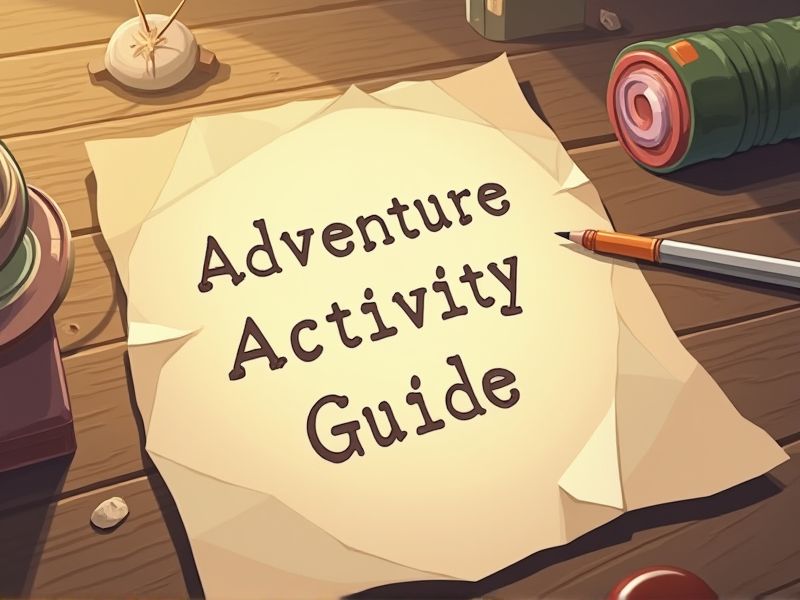
Adventure activity guides operate in high-risk environments, making safety a paramount concern. Legal and organizational standards necessitate the possession of certain certifications to ensure the protection and well-being of participants. Certification not only validates a guide's skills but also boosts client confidence in their ability to handle complex situations. Important certifications for an Adventure Activity Guide might include wilderness first aid or swift water rescue training.
Wilderness First Responder Certification
Adventure activity guides often operate in remote areas where medical help can be hours away, and having Wilderness First Responder Certification equips them to handle medical emergencies efficiently. This certification provides comprehensive training in managing injuries, illnesses, and environmental challenges unique to wilderness settings. The knowledge and skills gained through this certification increase the safety and confidence of both guides and participants. With the ability to address issues on the spot, guides can ensure that potential risks are minimized, leading to a more enjoyable experience for everyone involved.
CPR and AED Certification
Adventure activities often take place in remote or challenging environments where emergency medical services may be delayed, increasing the need for immediate first aid. Having CPR and AED certification enables guides to respond effectively to cardiac emergencies, which can mean the difference between life and death. Safety credentials improve the trust and confidence participants have in the guide, enhancing the overall experience. Certification requirements are often mandated by governing bodies or insurance companies to ensure industry standards are met.
Basic First Aid Certification
Adventure activities involve inherent risks and unpredictable circumstances that can lead to injuries. Basic First Aid Certification equips the guide with essential skills to provide immediate care, which can stabilize a victim until professional medical help arrives. Possessing this certification demonstrates a commitment to safety, enhancing trust among participants and compliance with regulatory standards. In emergencies, a quick and informed response by a certified guide reduces the severity of injuries, protecting both the participant and the guide from potential liabilities.
Leave No Trace Trainer Certification
The Leave No Trace Trainer Certification equips adventure activity guides with the knowledge to minimize environmental impact, promoting sustainable practices in outdoor settings. With increased public interest in nature activities, the certification helps prevent ecological degradation by educating guides on best conservation practices. This qualification enhances a guide's credibility, reassuring clients of responsible environmental stewardship. As outdoor areas face threats from overuse, having certified guides can lead to healthier ecosystems and more sustainable adventure tourism.
Avalanche Safety Certification
Avalanche Safety Certification equips adventure activity guides with the necessary skills to assess and mitigate risks in avalanche-prone areas, leading to increased safety for participants. Proper training allows guides to make informed decisions during emergencies, potentially reducing casualties or severe injuries in unexpected avalanches. Certified guides are more likely to use state-of-the-art equipment effectively, enhancing the overall safety environment for outdoor adventurers. Holding such certification boosts the credibility and trustworthiness of guides, attracting more clients who prioritize safety in high-risk environments.
Swiftwater Rescue Technician Certification
Swiftwater Rescue Technician Certification is crucial for adventure activity guides due to the inherent risks associated with fast-moving water environments. This certification equips guides with the skills necessary to safely navigate and respond to emergencies in swiftwater conditions. It ensures that guides can effectively manage rescue operations, thereby reducing the likelihood of accidents. Additionally, the certification process fosters a deeper understanding of water dynamics and safety protocols, which is essential for safeguarding participants during adventure activities.
Rock Climbing Instructor Certification
Possessing a Rock Climbing Instructor Certification verifies an individual's expertise and knowledge in ensuring safety protocols, which reduces the risk of accidents. This certification provides structured training and familiarity with best practices, crucial for an Adventure Activity Guide responsible for participants' safety. Clients and employers feel more confident engaging with guides whose qualifications are formally recognized. Regulatory bodies might require certification as part of compliance with local safety laws governing adventure sports.
Whitewater Kayaking Instructor Certification
Obtaining a Whitewater Kayaking Instructor Certification ensures that the guide possesses comprehensive safety knowledge and skill proficiency, reducing the risk of accidents during expeditions. Certification instills trust among participants, as it validates the guide's expertise and commitment to maintaining industry standards. Insurance providers often require certification to mitigate liability risks, making it a practical necessity for professional guides. Certification programs keep guides updated with the latest techniques and protocols, promoting continuous improvement in the field.
Mountain Biking Guide Certification
Mountain Biking Guide Certification ensures guides have the necessary skills and knowledge to lead safe and enjoyable biking excursions, reducing the risk of accidents. Certification provides standardized training that instills confidence in clients, which can increase demand for guided tours. Organizations prefer certified guides to maintain quality service and liability protection. A certified guide gains access to professional networks and resources, enhancing career opportunities in the adventure tourism industry.
Outdoor Leadership Certification
Outdoor Leadership Certification ensures guides have the necessary skills to navigate diverse terrains, which directly impacts safety in adventure activities. Certification provides standardized training, which fosters consistent quality and reliability in guiding practices. Participants gain knowledge in risk management, crucial for preventing accidents during adventure excursions. Certified guides are trusted more by clients, which enhances business credibility and attracts more participants to adventure activities.
Summary
You enhance your credibility and trustworthiness as an Adventure Activity Guide by obtaining certifications. This increased trust can lead to more job opportunities and client engagements. Organizations are more likely to hire certified guides, ensuring safety and professionalism in activities. Certifications also equip you with enhanced skills, leading to improved participant experiences and satisfaction.
